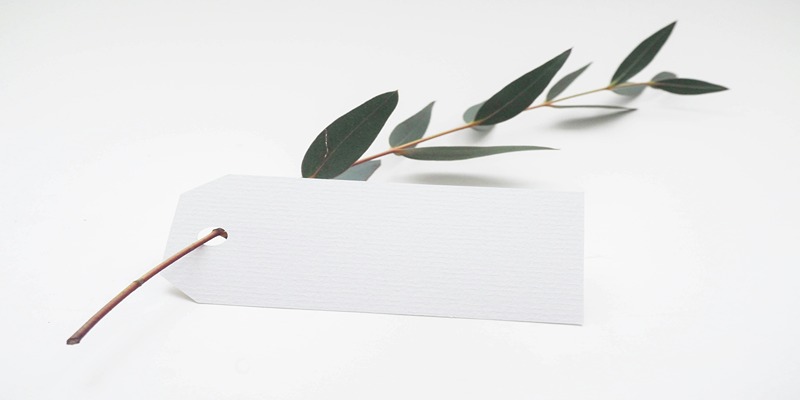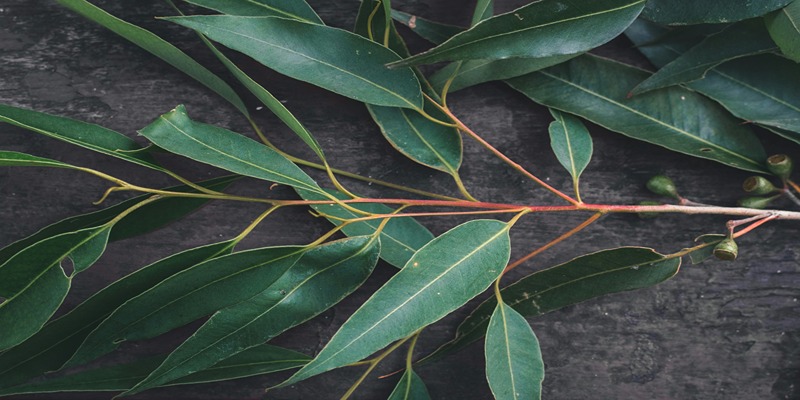The Healing Properties of Eucalyptus Tea
Mar 11, 2024 By Madison Evans
Eucalyptus tea is known for its many health advantages and unique scent. This herbal tea, made from eucalyptus tree leaves, has a long history of use as a remedy across many civilizations. Eucalyptus tea has made a name for itself in the natural medicine world thanks to its calming effects on respiratory problems and its powerful natural components. In this article, we will give you the rundown on eucalyptus tea, so you can understand why it is so well regarded in the herbal wellness community and what its many health advantages are.

The History and Origin of Eucalyptus Tea
For generations, eucalyptus tea has been a staple in folk medicine and other forms of alternative medicine. Traditional Australians made use of this herbal tea, which has its roots in the fragrant eucalyptus tree. They used it to treat wounds, lower fevers, and fight diseases after discovering its therapeutic qualities. Traditional medicinal methods in various cultures began to use eucalyptus tea as word of its many health advantages spread.
Brewing eucalyptus leaves was a common remedy for asthma, bronchitis, and sinusitis in ancient medicine. Many people found relief from congestion, coughing, and sore throats after brewing because of the powerful natural oils produced. Its antibacterial properties were highly prized, in addition to its respiratory advantages, of this tea. Its antimicrobial and anti-inflammatory characteristics made it a popular natural treatment for skin conditions like burns, ulcers, and wounds.
One common way to get these medicinal effects was to steep eucalyptus leaves in hot water and drink the resulting tea. With its refreshing aroma and legendary therapeutic powers, eucalyptus tea quickly became an international herbal medicine mainstay as word spread across cultures and continents. In light of its long and storied past, modern-day drinkers see eucalyptus tea for what it truly is: a heritage of natural healing.
Eucalyptus Tea Benefits: A Deep Dive
Respiratory Health Advantages
A long-recognized quality in herbal therapy, eucalyptus tea's reputation for improving respiratory health is well-deserved. Natural chemical molecule eucalyptol, found in eucalyptus leaves, is primarily responsible for these advantages; it is renowned for its decongestant and anti-inflammatory qualities. As an expectorant, eucalyptol helps release phlegm and relieve congestion in the chest and nasal passages when drunk as a hot cup of tea. As a result, eucalyptus tea is a great all-natural cure for respiratory infections like the common cold, flu, bronchitis, and sinusitis.
In addition to its other benefits, eucalyptus tea is famous for its ability to ease coughs and sore throats. Its anti-inflammatory characteristics make it useful for treating respiratory infections and allergies by reducing swelling and irritation in the respiratory system. For those with asthma and other respiratory conditions, drinking this tea on a regular basis may help improve general respiratory function by easing spasms and relaxing the muscles that control breathing. With its calming and all-natural effects, eucalyptus tea is a great addition to natural health practices for respiratory health.
Immune System Support and Antioxidant Properties
In addition to helping with respiratory issues, eucalyptus tea is great for the immune system. As an ally in the battle against infections and a booster for the body's natural defenses, it has natural antibacterial and antiviral characteristics. A number of substances found in eucalyptus leaves, including tannins and flavonoids, have antibacterial properties that may aid in the defense of the body against a wide range of infections.
The antioxidant content of eucalyptus tea is high, and it also helps the immune system. In order to keep cells healthy and damage-free, eucalyptus tea contains antioxidants that help neutralize free radicals. In addition to improving general health, these antioxidants have the added benefit of lowering inflammation, a recognized precipitating factor for several chronic diseases.
Eucalyptus Tea in Modern Herbal Medicine
Contemporary research is investigating and confirming the traditional applications of eucalyptus tea, which keeps it in the spotlight of modern herbal therapy. The pharmacological characteristics of eucalyptus leaves, and their possible application in the treatment of a variety of diseases, have been the subject of recent research. Cineole, an expectorant, anti-inflammatory, and antibacterial molecule, is one of several bioactive substances found in eucalyptus, according to scientific examinations.

Preparing Eucalyptus Tea: Tips and Methods
To enjoy eucalyptus tea to the fullest and get the most out of its health benefits, it is essential to brew it correctly. Finding high-quality dried eucalyptus leaves is the first step. You may find them online or at health food stores. You may also use freshly picked eucalyptus leaves, but be sure to wash and dry them well before using them in your tea recipe.
Boil water and let it cool somewhat for the best results; the optimal temperature is between 90 and 95 degrees Celsius (194 and 203 degrees Fahrenheit). This stops the leaves from being scorched, which can kill off certain good chemicals. For every cup of water, add 1-2 tablespoons of dried eucalyptus leaves. Ten to fifteen minutes is enough time to steep the leaves in boiling water. By steeping the leaves for a longer period of time, all of the beneficial chemicals and essential oils may be extracted.
Safety and Precautions: What to Know
Despite the widespread acclaim for eucalyptus tea's medicinal properties, consumers must be alert to the possibility of drug interactions and negative effects. To begin with, the leaves contain eucalyptus oil, which is a powerful and potentially poisonous substance in high doses. Hence, while preparing the tea, it is crucial to stick to the suggested quantities. If you consume too much, you may have lightheadedness, a queasy stomach, and nausea.
Because it contains eucalyptus, this tea may cause an allergic response in some people. Due to the lack of data on its effects in these groups, pregnant and nursing women should talk to their doctor before consuming eucalyptus tea.
Conclusion
With its many purported health advantages, including aid with breathing and the immune system, eucalyptus tea is quickly becoming a beloved herbal medicine. It is essential to know how to properly prepare it and follow all safety precautions, yet it has a sacred position in both ancient and contemporary herbal therapy. With an understanding of its medicinal value and the safety measures to take before drinking it, eucalyptus tea may be a great complement to a natural health routine, improving health via its therapeutic effects.







